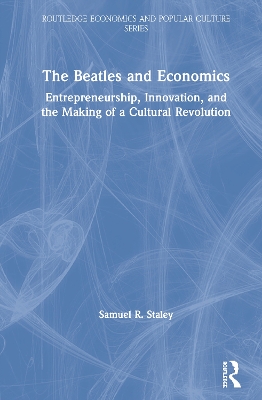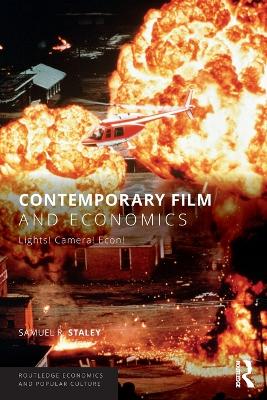Routledge Economics and Popular Culture
2 total works
The Beatles are considered the most influential popular music act of the twentieth century, widely recognized for their influence on popular culture. The inability of other bands and artists to imitate their fame has prompted questions such as: How did the Beatles become so successful? What factors contributed to their success? Why did they break up?
The Beatles and Economics: Entrepreneurship, Innovation, and the Making of a Cultural Revolution answers these questions using the lens of economic analysis. Economics provides the prism for explaining why their success—while legendary in scale—is not mythic. This book explores how the band’s commercial achievements were intimately tied to the larger context of economic globalization and rebuilding post-World War II. It examines how the Beatles’ time in Hamburg is best understood as an investment in human capital, and why the entrepreneurial growth mindset was critical to establishing a scalable market niche and sustaining the Beatles’ ability to lead and shape emerging markets in entertainment and popular music. Later chapters consider how the economics of decision making and organizational theory helps us to understand the band’s break-up at its economic peak.
This essential text is of interest to anyone interested in the economic dynamics and social forces that shape cultural change.
What does the movie Lion tell us about why some societies grow rich and others remain poor? What can the global box office juggernaut, Jurassic World tell us about entrepreneurs and the ethics of business? Can the movie Passengers give us insight into human motivation and decision making? This book surveys more than 40 movies to answer these questions and much more.
Movies do more than entertain. They project important insights, often unintentional, into the way the world works and the values society cares about. Indeed, their stories are often grounded in the real-world experiences of everyday people. As part of this, movies also provide a window into understanding and evaluating economic behavior. Economics is, after all, the study of how scarce resources like labor, capital, and technology are used to improve (or reduce) our welfare. It also helps us to more fully understand the consequences in our lives that result from those choices and decisions. Through exploring a wide range of films from Passengers to Victoria and Abdul, this book delves into economic concepts such as opportunity costs, profit maximization, greed, business ethics, monopoly, economic growth, and entrepreneurship.
Contemporary Film and Economics is a must read for anyone interested in how movies project and interpret economic ideas, craft popular narratives for how economies operate, and explore motivations for economic behavior. Economists will find it useful in starting discussions on key concepts, while filmmakers will find the discussions of economic concepts a provocative way of thinking about how to craft engaging stories that are grounded in practical experience.

